2001 Maccabiah Games
For the 2001 16th Maccabiah Games (Hebrew: המכביה ה16 ישראל תשס"א), the Opening Ceremony was held in Jerusalem at Teddy Stadium, while the re-building process of the collapsed bridge and investigations into the collapse continued.
 | |
| Host city | Jerusalem |
|---|---|
| Nations participating | 49 |
| Debuting countries | |
| Athletes participating | 3,300 |
| Events | 38 |
| Opening ceremony | July 16, 2001 |
| Closing ceremony | July 23, 2001 |
| Officially opened by | Keren Leibovitch |
| Main venue | Teddy Stadium |
It is considered a 'smaller games' for three reasons: attendance was significantly lower, particularly from the Australians (it sent only about 170 athletes, compared with around 400 in 1997); it was run at the height of the Second Intifada (and straight after the infamous Dolphinarium bombing—the largest of the Intifada—that killed 21 Israelis, mostly high school students); and not all wounds had been healed after the collapse of the bridge.
The 16th Maccabiah attracted more than 5,000 athletes from 46 countries.
History
The Maccabiah Games were first held in 1932.[1] In 1961, they were declared a "Regional Sports Event" by, and under the auspices and supervision of, the International Olympic Committee.[2][3][4]
Opening ceremony
Over 25,000 people were at the stadium for the opening ceremony. Keren Leibovitch, an Israeli paralympic swimmer who had won three gold medals at the 2000 Paralympics, was given the honor of lighting the torch at the Games at Teddy Stadium in Jerusalem.[5]
Junior futsal and girls' soccer were new sports.
At the opening of the Games on July 16, 2001, Prime Minister Ariel Sharon declared:
"Approximately 2,100 years ago, the Maccabees lit the torch in Modi'in and carried it to the gates of Jerusalem, in the Jewish people's struggle for freedom in its homeland. The same fire of freedom and faith, which was not extinguished during 2,000 years, is, today, passed on to you.... You represent the spirit of the Maccabees who fought for Jerusalem and for Jewish rights and independence 2,167 years ago."[6]
Notable medalists
Gold medalist Lenny Krayzelburg of the United States set a new record in the 100-meter backstroke. He also won a gold medal in the 4 X 100M medley relay.[7] Krayzekburg was chosen by the US team to carry their flag at the opening ceremony.[8]
Russian fencers Sergey Sharikov and Maria Mazina won gold medals in men's sabre and women's foil.[7] Vadim Gutzeit of Ukraine, who nine years earlier won an Olympic gold medal in team sabre, won a silver medal in sabre, as he lost to Scharikov. Jonathan Tiomkin of the US, who later was a Pan American Games gold medalist, won silver medals in team foil and team épée.
Participating communities
The number in parentheses indicates the number of participants that community contributed.
 Argentina
Argentina.svg.png.webp) Australia (170)
Australia (170) Austria
Austria Azerbaijan
Azerbaijan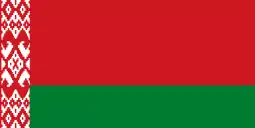 Belarus
Belarus.svg.png.webp) Belgium
Belgium Brazil (115)
Brazil (115) Bulgaria
Bulgaria.svg.png.webp) Canada (300)
Canada (300) Chile
Chile China
China Colombia
Colombia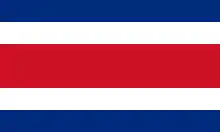 Costa Rica
Costa Rica Croatia
Croatia Denmark
Denmark Finland
Finland France (138)
France (138).svg.png.webp) Georgia
Georgia Germany (54)
Germany (54)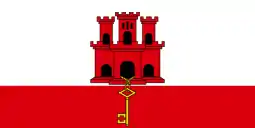 Gibraltar
Gibraltar Greece
Greece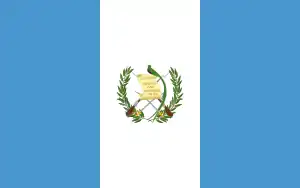 Guatemala
Guatemala Hungary
Hungary Israel (1,300)
Israel (1,300) Italy
Italy Latvia
Latvia Lithuania
Lithuania Mexico
Mexico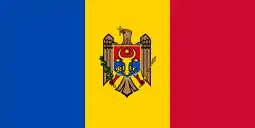 Moldova
Moldova Netherlands
Netherlands New Zealand
New Zealand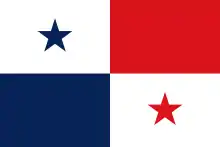 Panama
Panama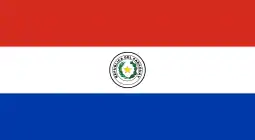 Paraguay
Paraguay Peru
Peru Poland
Poland Russia
Russia Slovakia
Slovakia Spain
Spain South Africa
South Africa Sweden
Sweden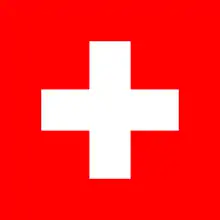 Switzerland
Switzerland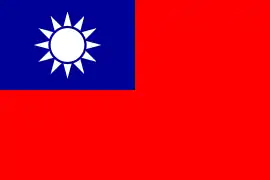 Taiwan
Taiwan Turkey
Turkey Ukraine
Ukraine United Kingdom (160)
United Kingdom (160) United States (387)
United States (387)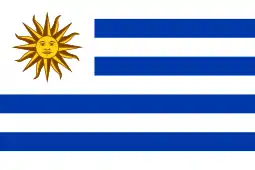 Uruguay
Uruguay.svg.png.webp) Venezuela
Venezuela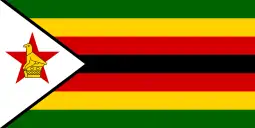 Zimbabwe
Zimbabwe
Medal count
* Host nation (Israel)
| Rank | Nation | Gold | Silver | Bronze | Total |
|---|---|---|---|---|---|
| 1 | 223 | 192 | 159 | 574 | |
| 2 | 34 | 54 | 61 | 149 | |
| 3 | 22 | 15 | 18 | 55 | |
| Totals (3 nations) | 279 | 261 | 238 | 778 | |
External links
Footnotes
- "The 20th Maccabiah Games: A brief History (Part 1)," The Canadian Jewish News.
- Helen Jefferson Lenskyj (2012). Gender Politics and the Olympic Industry. Palgrave Macmillan.
- Mitchell G. Bard and Moshe Schwartz (2005). 1001 Facts Everyone Should Know about Israel p. 84.
- "History of the Maccabiah Games". Maccabi Australia.
- "The Maccabiah Games history and information". Jewishsports.net. Retrieved July 10, 2011.
- "The Maccabiah Games history and information". International Jewish Sports Hall of Fame. Retrieved 30 April 2014.
- Schiff, Brian (August 2, 2001). "Phoenix of the Games". Jewish Journal. Retrieved April 30, 2014.
